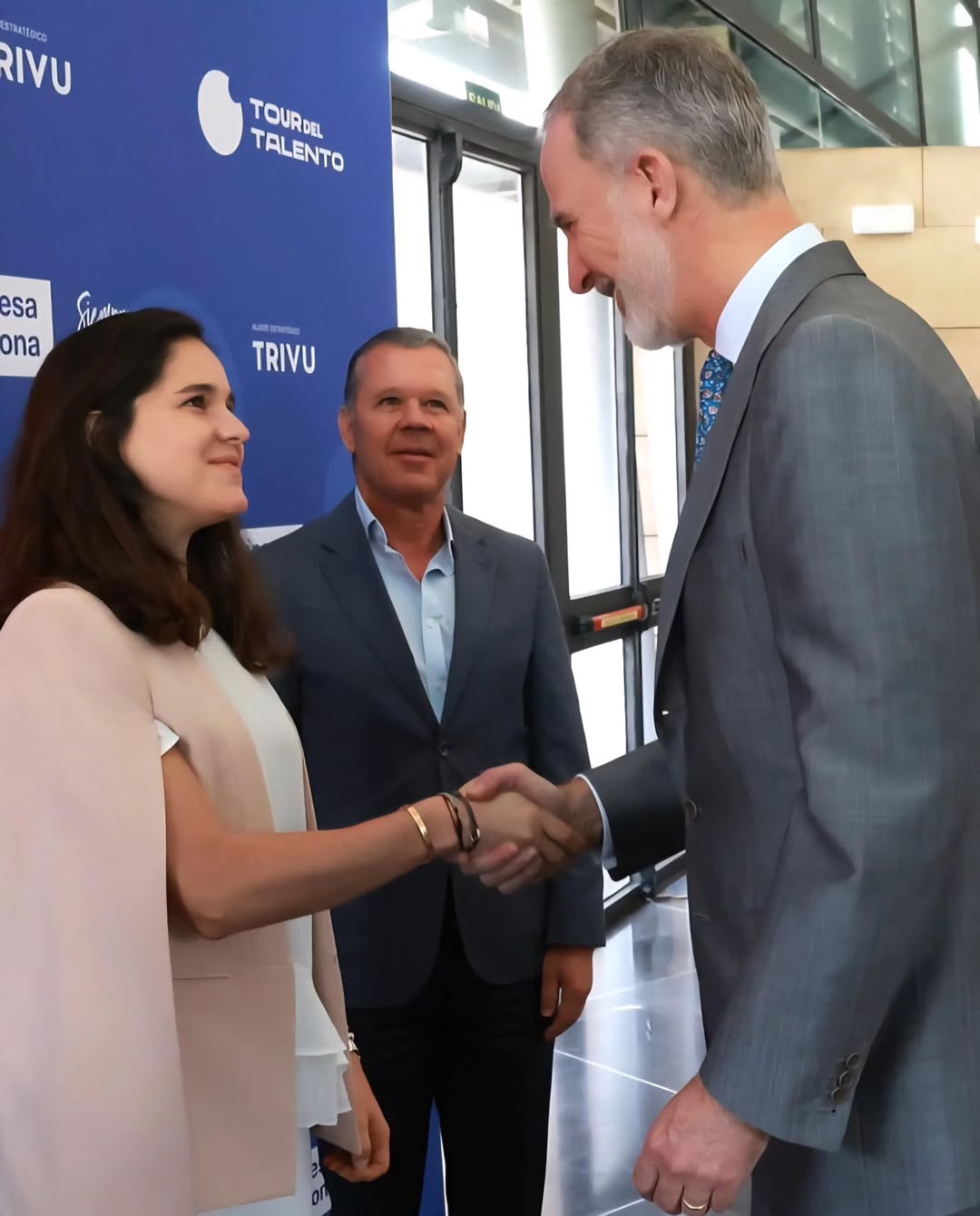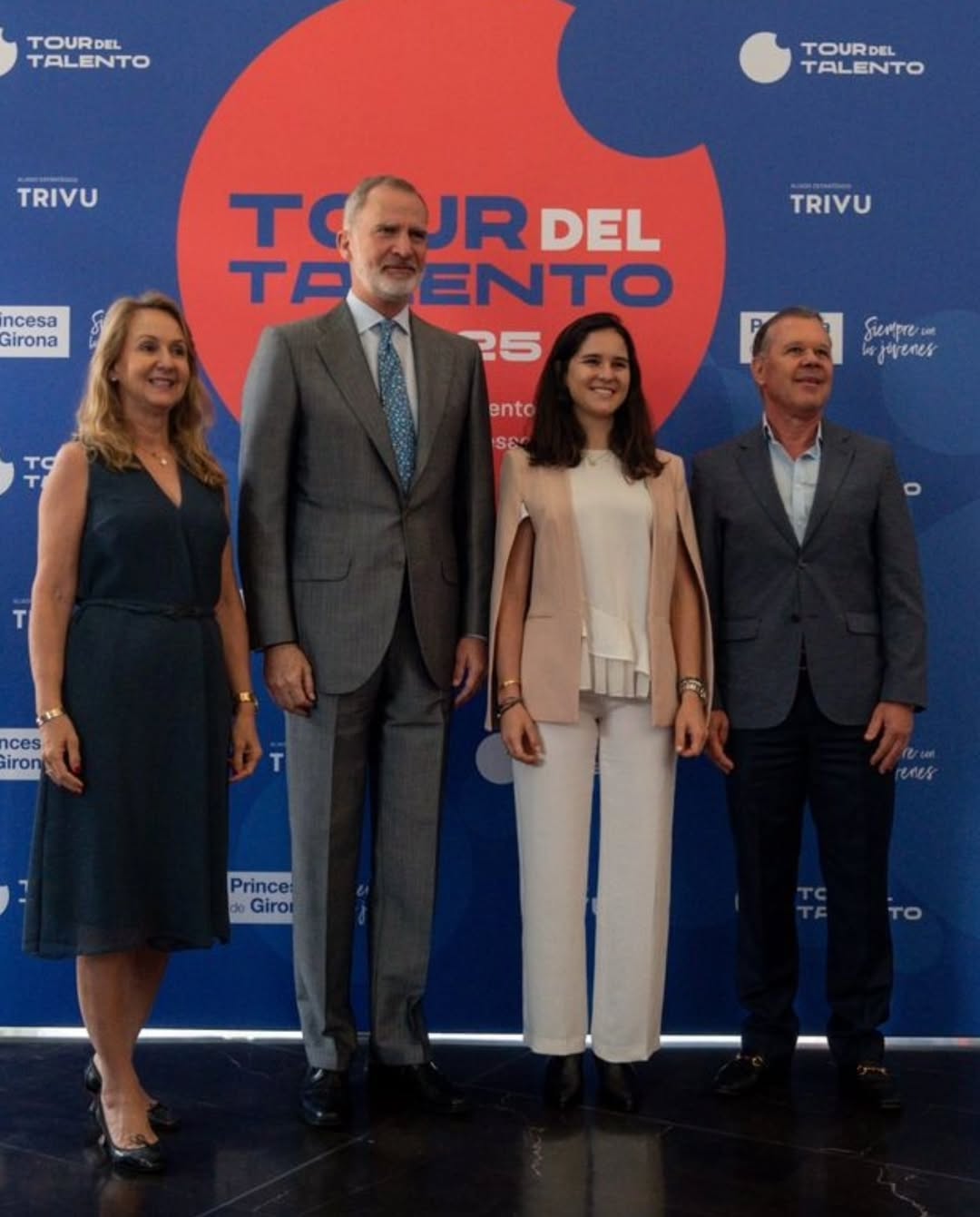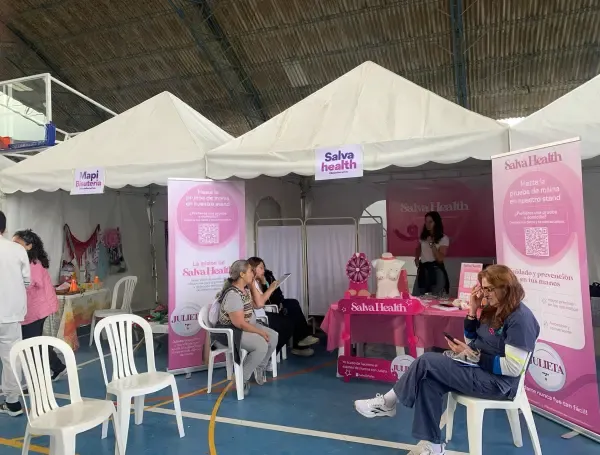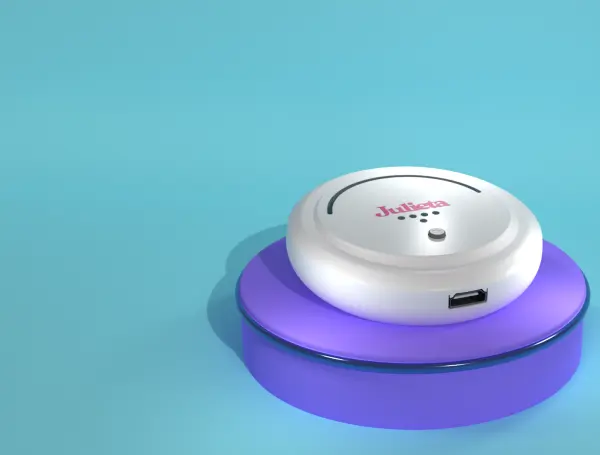40 Under 40 | Valentina Agudelo and her life-saving invention

I thought she was older when I greeted her. It's not just a physical issue; she speaks as if she'd lived much longer, with formidable confidence and maturity. She's only 28 years old, but what she's achieved so far is helping to change the lives of many women. Valentina Agudelo is a business administrator at Cesa and a social entrepreneur .
She has just received the 2025 Princess of Girona Award in Spain for creating 'Julieta,' a portable, painless device for the early detection of breast cancer.

Valentina Agudelo and her life-saving invention Photo: Salva Health
Although her name already appears in internet search engines with several press references, precisely because of her recent award, exploring a little more about her life and hearing her speak the way she does is truly fascinating. This is the result of that conversation.
Valentina, what was that moment or experience that connected you from a young age with the goal of working for health and making it more humane? I think it was a combination of what I had from my family and what I discovered at university. I come from an entrepreneurial family: my grandparents and parents were entrepreneurs, and they've always had that vision of making an impact, of creating products or services that solve real, massive problems. It wasn't specifically related to healthcare, but it was purposeful. The shift toward healthcare came at Cesa, where I studied business administration.
Tell us what happened there… In 2018, for an entrepreneurship fair, two colleagues and I decided to create a project for women, focused on women's health. We began exploring topics like menstruation, menopause, and pregnancy, and realized that, although there had been many advances, technology in this area hadn't fully taken off yet. We connected through personal experience and decided to go further.
And they went straight to the health issue, without any medical training. How difficult was that start? Difficult, no doubt. But also liberating. Not having clinical training allowed us to imagine solutions that others, perhaps, wouldn't even dare to consider. We didn't have a framework for what was or wasn't possible. That, rather than being a limitation, was a driving force. I remember one of the first questions we asked ourselves was: How can breast cancer have such a high mortality rate when, when detected early, it has an equally high survival rate? That contradiction was the starting point. From there, we began studying, researching, talking with doctors, engineers, and patients. It was like entering a jungle without a map, but eager to find a new path.

Valentina Agudelo and her life-saving invention Photo: Salva Health
Because it's a problem that affects us all. I felt the need to work on something that would have a real impact. Breast cancer remains the leading cause of cancer death in women worldwide. It's paradoxical because it's one of the cancers with the most treatment options if detected early. Furthermore, the technical and human challenge motivated me greatly. Learning about biomedicine, engineering, and public health was almost an obsession. I realized it wasn't just a project, but a cause, and since then I've worked to make that cause reach as far and wide as possible.
How do you explain in a few lines to people who ask you about 'Julieta'? What is 'Julieta'? 'Julieta' is a portable, noninvasive, painless device used as a pre-screening tool to identify whether a woman has breast abnormalities that warrant further screening, such as mammograms or ultrasounds. In other words, 'Julieta' doesn't replace breast cancer, but rather helps prioritize it. It works with electrodes similar to those used on an electrocardiogram, which are placed on the breast and, in just two and a half minutes, can detect patterns that indicate the need for additional screening. It uses artificial intelligence and is designed to reach where other devices can't: rural areas, underserved communities, and women without access to regular screenings.
Was there anything like this in the world when 'Juliet' was invented? In 2018, when we started, no. The closest thing was mobile mammograms or portable ultrasounds, which also require technicians, transportation, and infrastructure. Other technologies have emerged since, but many of them are designed for women who can buy them and use them at home. They're not accessible; they're exclusive. 'Julieta,' on the other hand, was designed from the ground up with a different focus: serving those who need it most, even in places without continuous power. And that makes it unique.

Salva Health Brigades. Photo: Salva Health
Mmm. Good question. I'd say it's been the same. When we started testing with real patients, we met Marcela, a pregnant woman with very aggressive breast cancer. She decided not to undergo treatment so she could carry her pregnancy to term. She knew she only had a few months left to live, but she decided to dedicate that time to helping us with the research. Marcela was our main volunteer. She allowed us to study, understand, and learn. Her generosity left a profound impact on us. It was the most painful moment, and at the same time, the most beautiful. She knew she might not live to see the results, but she said, "What if this really works?" With that "what if?" we kept going for six years.
If I'm not mistaken, more than 3,000 women have used 'Julieta.' What have you learned from them? A lot. But if I had to choose one word, it would be courage. Women have been very receptive, even to something so novel. They've shown us that innovation isn't frightening when it comes with empathy. In the communities where we've worked, many have felt proud to participate in research. That sense of community, of collective purpose, has left a lasting mark on me. They've taught me to look beyond fear and see technology as an ally, not a threat.
From the "no-no's" you're told in life, you learn many things; you build character; you open up paths to reinvention. Do you remember any "no's" you're grateful for today? More than a verbal "it can't be done," it was a number: in Colombia, out of every 100 health registrations approved each year, only two are for medical devices, and only 0.2 percent are manufactured in Colombia. That's not even a "it can't be done" from someone giving their opinion, but the reality of things in this country. It reflects an ecosystem with many barriers. We were told there was no talent, no infrastructure, no conditions to develop this here. But we did it. And today 'Julieta' is proof that it can be done.
In Colombia, of every 100 health registrations approved per year, only 2 are for medical devices, and only 0.2 percent are manufactured in Colombia.
It has been one of the most beautiful experiences of my life. It was a recognition of teamwork and persistence. From the beginning, we believed that 'Julieta' was a solution the world needed, and receiving this award was like hearing the world say, "Yes, we needed this." We felt embraced by an international community that believes in science, in purposeful entrepreneurship, and in technology serving others.

'Julieta' allows for breast cancer risk screening in five minutes. Photo: Salva Health
Wonderful. I was surprised by how humane the king, queen, princess, and infanta were. They approached us with kindness and genuine interest in the projects. They had read about each one and knew what we were doing. Plus, sharing the experience with other award winners was incredible. All of them had impressive stories. It was a moment of great learning, but also of great humanity.
I've always heard you speak in the plural, and I like that. What role does your team play in this whole process? Overall. I'm the visible face, but behind it all is a brilliant team. 'Salva,' our company, has brought together talents from many fields: engineers, doctors, mathematicians, designers, administrators, as well as institutions, universities, and public and private partners. The secret of 'Julieta' lies in synergy. It's not a solution created by one brilliant mind, but by many purposeful people.
I ask you to answer this as honestly as possible: Has the Colombian health system, the EPS, the decision-makers, the State paid any attention to you? Has it truly heard you? Hmm, another good question that I'll answer with the sincerity you ask for. I have to admit that at first, I didn't. There was fear, misinformation. Many believed we wanted to replace mammography or perform diagnostics, which isn't true. But in recent weeks, thanks to better communication and international support, doors have begun to open for us. That said, the regulatory path was long and could have been much more agile. Hopefully, this learning will help other innovators avoid having to overcome so many barriers.
'Julieta' is just the beginning, I have no doubt. What's next? We're working on new solutions for early detection of other high-incidence diseases: fatty liver disease, diabetic retinopathy, lung cancer, and pancreatic cancer. And we also want to be a platform for other research to reach the market. Colombia has talent. What's needed is to reduce friction.
And if you could leave just one message for those who still believe that Colombia can't innovate... I would tell them to get going. To surround themselves well. To be stubborn. Because it's possible. There are barriers, of course, but there are ways to overcome them. The road is long, but also deeply rewarding. I'm convinced that the world needs more solutions from the South. And that Colombia has everything to provide them.
eltiempo





